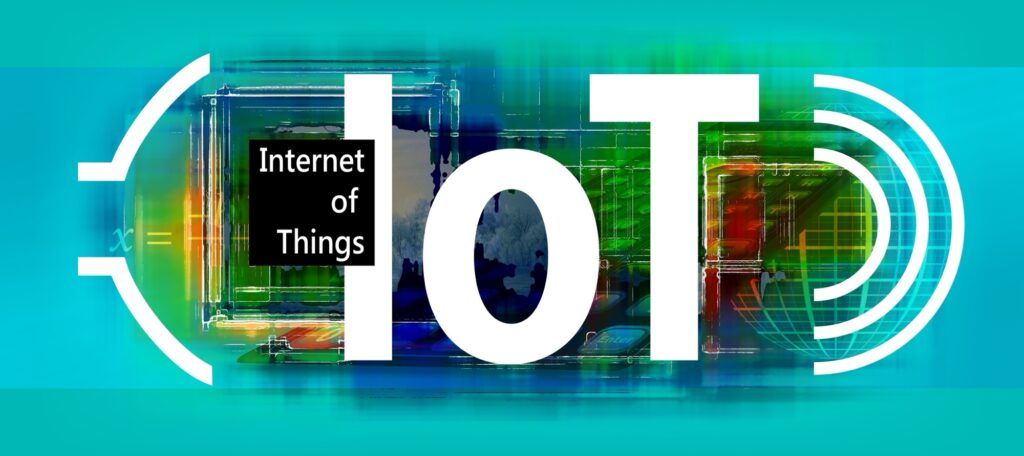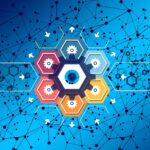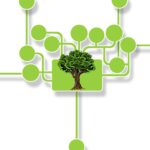
The Internet of Things (IoT) has moved from future imagination to an everyday reality and getting itself into the routine of our lives. IoT is the future and that develops many gateways for the future people to get more benefits from that resourse. From smart thermostats that learn our preferences to industrial sensors that predict machine failures, IoT is reshaping how we interact with the world. But what exactly is it & why is it causing is the question among the people. Let’s delve into the fascinating world of IoT & explore its potential, challenges & future.
What is the Internet of Things?
it is a core thing, IoT is network of physical devices “things” Connected with sensors, software & other technologies that enable them to connect & exchange data over the internet. These “things” can range from simple and more household appliances to complex in the industrial machinery. Imagine refrigerator that automatically orders groceries when you’re running low, or network of traffic lights that adjust their timing based on real-time traffic flow. These are just few examples of the power of IoT.
The Key Components of an IoT Ecosystem:
To understand & how IoT works, it’s essential to grasp its key components:
- Devices/Sensors: These are the “things” that collect data from their environment. Sensors can measure temperature, humidity, light, motion & countless other parameters.
- Connectivity: Devices need way to transmit the collected data. This can be achieved through various technologies, including Wi-Fi, Bluetooth, cellular networks (4G, 5G) &low-power wide-area networks (LPWANs) like LoRaWAN& NB-IoT.
- Data Processing: Once the data is collected, it needs to be processed & analyzed. This can happen locally on the device itself (edge computing) or in the cloud.
- User Interface: Finally, the processed data needs to be presented to the user in meaningful way. This can be done through mobile apps, web dashboards, or other interfaces.
IoT Across Industries:
IoT is transforming many industries, leading to increased efficiency, productivity & innovation. Here are few examples:
- Smart Homes: IoT will make our home more and more comfortable, secure & energy-efficient. Smart thermostats, lighting systems & security cameras are just few examples
- Healthcare: IoT is revolutionizing healthcare with devices that monitor vital signs, remote patient monitoring systems & smart drug delivery systems.
- Manufacturing: IoT is enabling predictive maintenance, improved quality & optimized supply chains. Sensors on machinery can detect potential failures than before they occur, reducing downtime & costs.
- Agriculture: IoT is helping farmers to optimize crop, conserve water & reduce pesticide use. Sensors can monitor soil moisture, temperature & other environmental factors.
- Transportation: IoT is enabling smart traffic management, autonomous vehicles & connected logistics. Sensors in vehicles & infrastructure can be provide realtime data to optimize traffic flow & improve safety.
- Retail: IoT is changing retail with smart shelves that track inventory, personalized shopping experiences & automated checkout systems.
The Benefits of Implementing IoT:
The adoption of IoT brings plethora of benefits:
- Increased Efficiency: Automation & data driven through lead to optimized processes & reduced waste.
- Improved Productivity: Real-time monitoring & predictive maintenance minimize downtime & maximize output.
- Enhance of Decision Making: Data analytics provide valuable resource of insights that provide support informed decision-making.
- Cost Reduction: Optimized resource utilization & reduced downtime lead to significant cost savings.
- Improved Quality of Lifestyle: Smart home devices & healthcare applications enhance comfort, convenience & well-being.
- Sustainability: IoT can enable more and more efficient energy consumption & resource management through contributing to more sustainable future by IoT.Challenges& Concerns:
The potential of IoT is Great and there are also challenges & concerns that need to be addressed:
- Security: The interconnected with nature of IoT devices makes them vulnerable to cyber attacks. Protecting sensitive data & preventing unauthorized access is crucial time and this is used for protection.
- Privacy: The wide amount of data collected by IoT devices are raise to concerns about privacy. Clear policies & regulations are needed to be ensure the responsible data handling.
- Interoperability : The more standardized protocols that can be make it difficult for devices from different manufacturers to be communicated with each others and relatable to more.
- Scalability: Managing & processing the big and big amount of data, that are generated by billions of IoT devices requires robust infrastructure & scalable solutions.
- Reliability: IoT systems must be Effective & resilient to ensure uninterrupted operation, especially in critical applications.
- Ethical Concerns: The increased use of automated systems raises ethical questions about job displacement & the potential for bias in algorithms.
The Future of IoT:
The future of IoT is bright, with continued advancements in technology & increasing adoption across industries. Some key trends shaping the future of IoT include:
- Edge Computing: Processing the data closer to source will reduce latency & improve immediate response.
- Artificial Intelligence (AI) & Machine Learning (ML): AI & ML will enable more high level data analysis & automation, leading to smarter & more automatic IoTsystems.
- 5G Connectivity: Faster & more accessible 5G networks will enable more useful & efficient data transmission.
- Digital Twins: Creating virtual samples of physical assets will enable better monitoring, simulation & optimization.
- Blockchain: Block chain technology can enhance security & transparency in IoT networks.
- Sustainability based IoT: Increased focus on using IoT to monitor & reduce environmental impact.
Read also: Bridging the Divide: Exploring the Frontiers of Brain-Computer Interfaces
Conclusion:
The Internet of Things is changing the world around us, creating more connected, efficient & intelligent future to human. While challenges remain, the benefits of IoT are undeniable. Addressing security & privacy concerns & fostering collaboration & innovation, we can harness the power of IoT to create better world for all. The key to successful IoTimplementations lies in thorough understanding of the technology, careful planning &focus on delivering real value. As IoT continues to develop, it will definitely play an increasingly important role in our lives & shape the future of industries across the globe.
Buy Now
Quantum Computing for Computer Scientists

